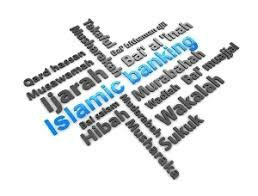Ottawa
Although currently not quite in the very centre of attention of the global Islamic finance industry, the Canadian Islamic finance scene in the recent past has experienced growing interest from domestic and international investors, as it developed a rising number of Shariah-compliant investment and financing offerings. The reason is that more Muslims are seeking halal banking and finance products and – in general – an open-minded and progressive society is looking for alternative and socially conscious ways of investing.
Canada is home to an estimated 1.5mn people following the Islamic faith, or around 4% of the population, which makes Muslims the second largest religion in the country, while it is also the fastest-growing. Most of them are immigrants, but there is also a growing percentage of Muslims born in Canada and a smaller, but increasing number converting from other religions to Islam. Most of them live in the Greater Toronto and Greater Montreal area and are generally middle-class and well educated with considerable grades of financial literacy. Overall, it is estimated that the number of Canadian Muslims will double in the coming decade. Besides, the Muslim community in Canada is quite young, so there is definitely a large potential for mortgage, car, house and personal insurance, credit cards and consumer loans. Multiple-language offerings, personalised services and modern technology-based banking and investment products further create demand in Islamic banking.
These facts, paired with Canada’s global competitiveness and ease of doing business, its AAA credit rating, its well-supervised financial market with strong risk management mechanisms, a sound banking system and a financial regulatory regime which has shown to be compatible with many Islamic finance instruments make a solid background for a thriving Islamic banking and finance landscape.
This situation, together with open-minded non-Muslims on the outlook for ethical and sustainable investment, has raised particular demand for halal mortgages and sukuk and Islamic mutual funds, Islamic insurance, or takaful, as well as commodity- and infrastructure-backed investment. Notably, Canada’s wealth in natural resources, which ranges from mining to hydrocarbons, combined with its ambitious infrastructure development agenda provide countless investment opportunities for investors looking for Shariah compliance in accordance with the asset-backed product requirements of Islamic finance.
There are already a number of Islamic finance players, with the most established being United Muslim Financial, Habib Canadian Bank, Al-Ittihad Investment, Al Yusr, Manzil Bank, Ijara Community Development Corp, Islamic Co-Operative Housing Corp, Ansar Co-operative Housing Corp, Qurtuba Housing Co-op, An-Nur Housing Cooperative, Amana Auto Finance Canada, Assiniboine Credit Union, newer players such as Iana Financial, Wealthsimple Halal, ShariaPortfolio Canada, Global Iman Fund, as well as a number of other medium-sized and smaller player and mortgage cooperatives. Besides, there are a growing number conventional banks and financial institutions opening Islamic windows or planning to do so, among them Canadian Imperial Bank of Commerce or the Canada Mortgage and Housing Corp.—Gulf Times









